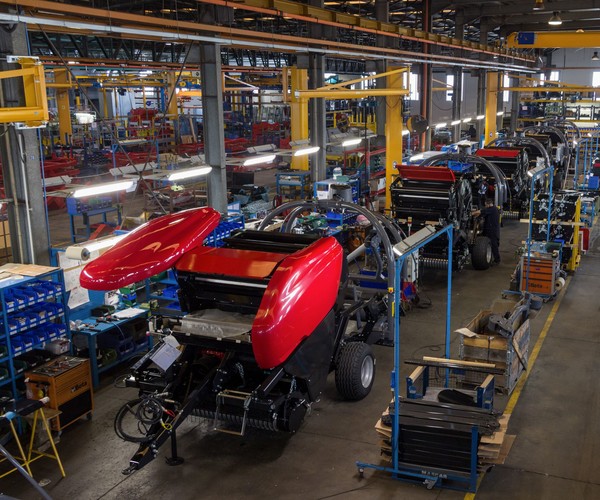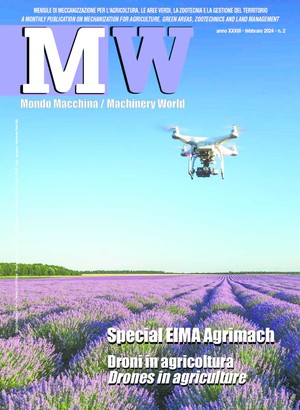
State incentives, financial and credit solutions to exit the emergency
The Covid-19 caused the biggest economic crisis the world has seen in the last 100 years. The global economy suffered a severe blow and in Italy in particular, small and medium-sized industrial enterprises
Companies found themselves having to deal with the economic and structural fallout of the pandemic, starting from an already inadequate liquidity and capitalisation situation. For economic recovery, Italian companies realised they had to focus on three main areas. First and foremost, the ability to innovate: most companies want to evolve their business strategy, looking for new customer bases to serve and developing new products. There is a need to adapt the business model to changing needs, including by developing skills through training or targeted recruitment. We will be faced with a new industrial revolution, or more correctly, a technological revolution.
Another area of intervention is internationalisation and diversification: 50% of companies claim (source Deloite) that business recovery starts from expansion into foreign markets and state that they want to expand their geographical coverage by starting a process of entry into the countries of greatest interest in order to fully exploit the opportunities of the recovery and to reduce the risk of market concentration. Another central theme is economies of scale and capital strength. All companies recognise the need to strengthen their business size, mainly by balancing their exposure to third parties, consolidating debts and implementing capitalisation strategies - also through extraordinary transactions - in order to achieve sufficient economies of scale to be resilient and competitive in the medium to long term.
To achieve this evolution, SMEs increasingly consider banks, credit brokers and insurance brokers as necessary partners and advisors. Unlike in the past, companies are relying on the financial system to cope with the crisis and build the new-normal, i.e. the normalisation of the economic and financial system. In a context of already consolidated relations between banks and SMEs, 50% of companies (source Deloite) are willing to turn to their bank for less 'traditional' activities, such as intermediation with specialist providers for the expansion of commercial channels, internationalisation, the exploitation of government incentives, advice on issues related to emerging business models also enabled by new technologies. This is the background to the Recovery Plan, which provides specific measures for innovation and mechanisation in the agrifood sector. The broker, by combining insurance and financial activities, becomes a strategic partner of the company; a partner capable of speaking the same language and translating it into international markets, acting as a trait d'union between insurance companies and the financial system.
Recovery plan: opportunities to innovate and mechanise in an environmentally sustainable way
Looking at the details of the NRP, the 'Sustainable agriculture and circular economy' component, amounting to EUR 5.27 billion, includes an allocation of EUR 2.8 billion specifically earmarked for the promotion of sustainable agriculture. These resources are intended to finance the development of logistics for the agri-food, fishing and aquaculture, forestry, floriculture and nursery sectors, the agri-solar fleet, innovation and mechanisation in the agricultural and food sector. EUR 500 million have been earmarked for the latter measure. Among the various lines of action envisaged is the granting of capital grants for the modernisation of agricultural machinery and machinery fleets, to encourage not only precision farming and agriculture 4.0, but also to reduce polluting emissions.
With a view to the circular economy, the project also includes investments to modernise the processing, storage and packaging of food products, with the aim of improving the sustainability of the production process, reducing and eliminating the generation of waste, and encouraging reuse for energy purposes.
Other financial and insurance solutions
SIMEST financing for the internationalisation of Italian companies includes subsidised loans, according to the "De Minimis" scheme, and non-repayable co-financing (in the authorisation phase, in compliance with the Temporary Framework), and is developed in seven points with individual ceilings. With the SIMEST facilities, companies can cover expenses for: capitalisation, participation in international trade fairs, entering foreign markets, temporary export management, e-commerce, feasibility studies, technical support programmes. "The possibility to exploit multiple channels implies the need to assess the different aid schemes, including also the new temporary aid framework in response to Covid-19 and the pre-existing "de minimis" scheme and Regulation 651/2014 on State aid. Failure to assess these aspects could result in the guarantee application not being accepted," explains Stefano Massari, internationalisation and subsidised finance expert and sole director of SMP Consulting.
Trade credit management
Among the solutions for businesses, the insurance aspect must be considered, which is also supported by art. 35 of Decree Law no. 34 of 19 May 2020, known as the 'Decreto Rilancio', i.e. Restart Decree. For the management of credit, SACE is authorised to grant insurance companies authorised to conduct credit insurance business in Italy a 90 per cent guarantee up to a maximum limit of € 2 billion. By virtue of this guarantee, the insurance companies undertake to keep available and, if necessary, to reconstitute the insurance plafonds of their insured customers, existing at the date of entry into force of the aforesaid guarantee if so requested by the insured customers. This in order to preserve and maintain the continuity of their insured customers’ trade with their respective clients and to ensure that trade credit insurance services continue to be available on the Italian insurance market.
"Exchange rate movements can erode the industrial margin of SMEs with import and export relationships. Covering this risk through the use of a mix of insurance and banking instruments can be a solution," says Carlo De Simone, finance and insurance expert and CEO of the European Brokers Group. "The solvency of companies can be improved by adopting an approach in which the insurance guarantees the bank providing the liquidity in the real economy. Thus, in the new-normal environment, banks and insurers will increasingly engage in synergies that will result in the interaction of insurance and financial products. The European Brokers group, which recently signed an agreement with FederUnacoma specifically aimed at agricultural machinery companies, provides exchange rate risk management tools in unstable market conditions for over 100 currencies, with the possibility of managing purchases and sales in foreign currencies and relying on a clear budget, protecting margins from the risks of fluctuations in other countries' currencies, using fast, simple and entirely digital solutions".








